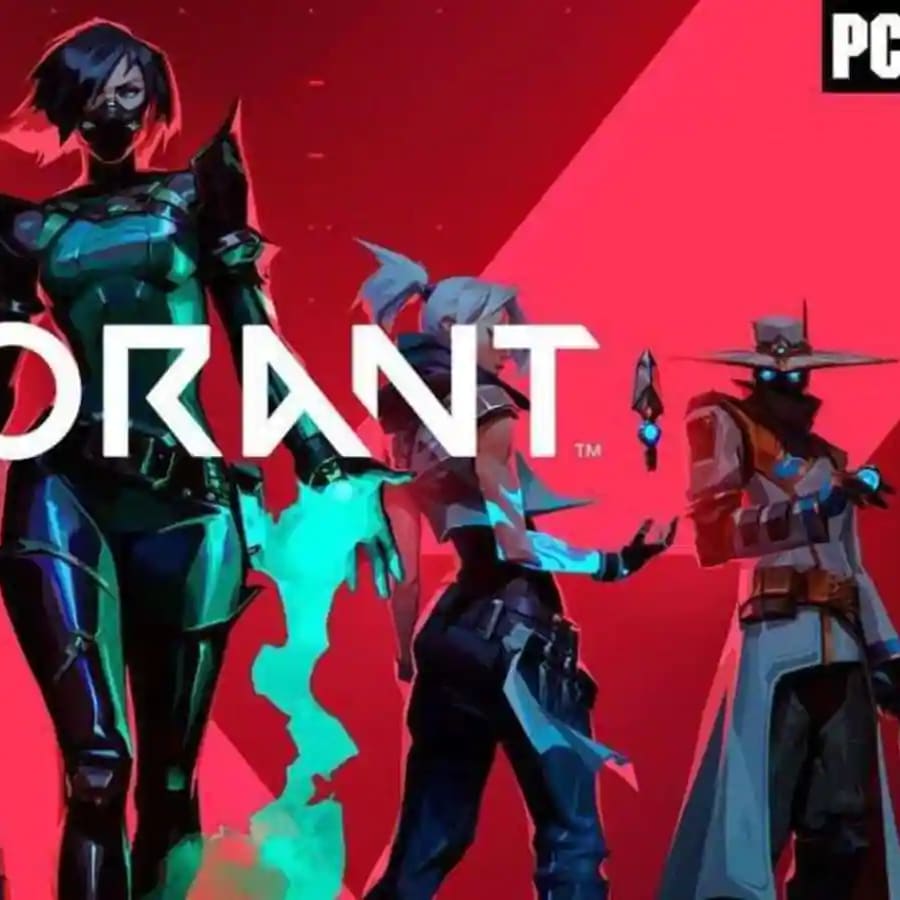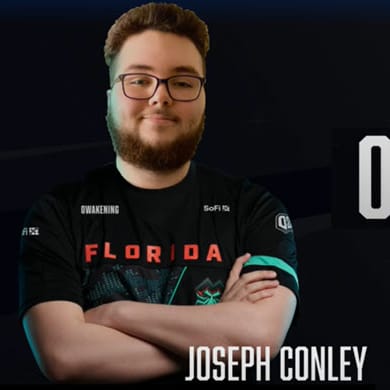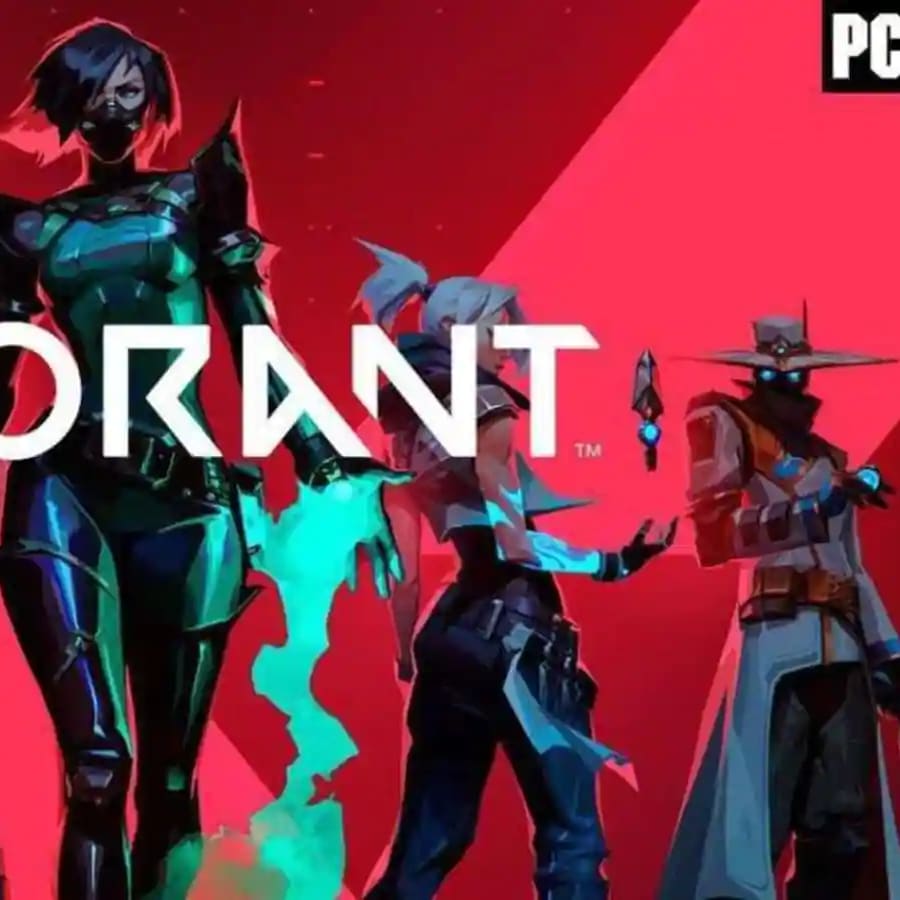This article is part of our LoL Bios series.
It was an electric atmosphere last August at the 2015 Tencent LoL Pro League finals in China, the country's biggest tournament. Cheers from a raucous crowd competed with dubstep blaring out of loudspeakers for control of the airwaves. Spotlights flashed throughout the stadium, illuminating stands packed with fans before coming to rest in the middle of the stage, lighting up the Chinese version of the Summoner's Cup and reminding the 10 young men surrounding it what they came to fight for.
To hold that cup aloft is the ultimate honor in the Tencent LoL Pro League. It represents dominance over the region and, more importantly, would mark the owners as the top team from the Chinese region heading into the World Championships in October. Winning the Pro League finals was the first step to being the first team to bring the championship pennant to China.
When the announcer introduced the favorites, LGD Gaming, the crowd erupted. It's an organization as old as the LPL itself, with fans as rabid as they are plentiful. To many in the stadium, LGD represented the best hope for China to win it all, as previous favorites EDG had been mired with issues since earning a stunning upset victory in the Invitational.
But when LGD's opponents were introduced, the crowd barely buzzed. Heading into the Pro League finals, the newly formed Qiao Gu Reapers were nothing but upstarts, having narrowly defeated longtime fan favorites Invictus Gaming to earn its place in the finals. Yet most wished it hadn't. Newly promoted from the LSPL, China's amateur league, the QG Reapers were seen as a middle-of-the-pack team in an LPL that was well known for its extremely loyal fans, most of whom felt cheated when the new kids on the block scored upset victories against their favorite established teams. Many would consider it a shame if QG Reapers defeated LGD, yet there it stood, each of the team's members grinning in turn as they were introduced. Everyone expected LGD to dismantle the Reapers.
Yet when the dust settled, LGD took the throne after a riveting five-game series, a far cry from the expected one-sided affair. Qiao Gu would fade from everyone's minds as it succumbed to Invictus Gaming, who won the right to represent China alongside EDG. The three Chinese teams would go on to have an infamously bad performance at the World Championships. The best of them, EDG, would lose in the first elimination round after hardly putting up a fight against a Fnatic lineup that seemed destined to prove the West wasn't as weak as everyone believed (a lineup it had embarrassed easily on its way to winning the very Midseason Invitational that set the expectations for China so high). Through it all, the QG Reapers watched. They waited. They planned. They practiced.
Flash forward to the beginning of the 2016 season, and the QG Reapers have done something that few in the industry would have predicted: they have dominated the competition. Through Feb. 26, the Reapers remain undefeated on the season, having dropped just a single game -- to Vici Gaming, a game that looked more like a dominant team playing with its food and getting burned more so than it did any kind of upset. While the Reapers have yet to claim the throne, few question that they deserve it, as every contender has either been struck down outright or become embroiled in internal issues, paving the way for the Reapers to make history.
But who are these new kings of China? What sort of players make a team go from a nameless amateur squad to a unit whose dominance is the predominant storyline in the region? Here's a look at each QG Reaper, including their backstory, strengths and weaknesses.
V: The great role player
There are two types of players that make up a winning roster: the superstar players who generate hype and carry their team with all of the resources they're handed, and the role players who enable them. In most sports, too often the latter is overlooked. If you want to succeed in a game that requires such careful resource allocation like LoL, someone is going to have to put their ego aside and take one for the team. For the QG Reapers, that someone is V, their top laner. While other top laners might rely on the support of their jungler to get them through the laning phase, V instead does the exact opposite. When Swift and Doinb are looking to make an aggressive play, he acts to support it. Other times, V will sit back in the lane, patiently awaiting an opportunity to join his team in the skirmishes they're so renowned for.
This may be painting a picture of a mechanically weak top laner, relegated to a supporting role due to lack of skill. That couldn't be further from the truth with V, and it's why he's such an exceptional player. He has the potential to be a star but forsakes it for the good of his team. Some teams rely on a top laner that can consistently duel and eke out advantages in the often harsh microcosm of top lane, such as Vitality's Cabochard. Qiao Gu, however, are a team that typically win as a team, not as individuals, and as such ask for a much different type of top laner, one who can buy the carries the time they need in teamfights and do it without resources. Not many top laners can survive while being left to fend entirely for themselves, watching as their carries swoop in to take any easy farm that might otherwise be theirs. V is one of those top laners -- and one of the most valuable role players in all of China.
Swift: The quintessential carry jungler
While it would be disingenuous to say that Swift came out of nowhere, it's hard to argue that on QG Reapers he has found a form that few could have dreamed would be possible, considering his somewhat underwhelming rookie season with CJ Entus. On QG, all of his old weaknesses have become strengths, as he was suddenly surrounded by something that he hadn't had before: a roster willing both to support and trust him. In particular, his partnership with fellow Korean Doinb is beautiful to watch on the Rift, as Doinb has even gone so far as to adopt a style that many might call inefficient just to give Swift the opening he wants in the early game. Swift, for his part, wastes no time in exploiting those openings, invading the enemy jungle with ruthless efficiency. It's this style that makes Swift so unique, as traditionally junglers are beholden to their laners, ganking and warding for them as they demand. On QG, however, the relationship is much more two-sided. Yes, Swift will gank for you, and yes, he'll clear that pink and keep tabs on the enemy jungler, but in return he asks that his lanes be ready to support him when he picks a fight. The fact his teammates do so without hesitation is what has led to Swift's incredible stats, nearly leading the league in CSPM while also leading in KDA and ward statistics.
Swift's true power, however, is teamfighting. It's not without reason that most refer to him as China's premiere carry jungler, and his damage statistics are unique in that he has found himself even outperforming his teammates with traditional carry roles. His Graves performance in particular bears mentioning, as he holds a nearly unbelievable 11.4 KDA over five games, averaging but a single death in each. As a reference point, the only notable player with a higher KDA on a single champion is another QG player: Peco, who currently holds an astonishing 18.17 average KDA on Ezreal over seven games. All of this points to one conclusion: Swift is a legitimate carry threat on this team and is reminiscent of the days of yore, when in Season 3 a player like InSec could single-handedly carry his team from the jungle.
Doinb: The 'Genius Mid Laner'
Unlike his fellow Korean, Swift, Doinb had no pedigree to fall back on. When the QG Reapers found him, he was simply a high-level solo queue player, the kind who teams occasionally gamble on in the hopes of training the next breakout player. To say the QG Reapers struck gold is putting it mildly, as Doinb immediately took off and has put his mark on the LPL, earning plenty of MVPs in his inaugural split. In the Summer Split, he distinguished himself as one of the world's unofficial masters of Viktor, being one of four players who spent most of the split undefeated on the champion. In addition, his LeBlanc was feared enough to draw bans from most any team, bans that often left his even more dominant Viktor up for the taking. That in itself demonstrates his versatility, as he is as comfortable playing teamfights with entirely divergent styles.
Versatility, though, is not Doinb's only asset, nor his greatest. Like many of his teammates, he's willing to adapt to what the team as a whole requires, using his natural ingenuity to adapt to circumstances on the fly. As such, the LPL casters have dubbed him the "Genius Mid Laner." Between games, you can see his style shift, his level of aggression changing based on gamestate. Often he'll simply stand in mid lane, content to slaughter the minions before abruptly changing priorities, dumping all of his mana into making the enemy laner fight him. These exchanges often aren't productive for him, but that's not the point: At the same time, across the map, Swift will be killing a ward, taking a camp or even diving a tower. The aggression isn't sending a message of dominance, but rather acts as a delaying tactic. One needs to look no further than Swift's stats to see the effectiveness of this tactic, and amazingly, Doinb rarely is punished beyond a minor loss in lane pressure for such tactics. That highlight what is, in my opinion, truly his greatest strength. For Doinb, no game is ever lost and no matchup is too hard to overcome. This is the man who blind first picks Viktor, something lesser mid laners would consider suicide. Doinb does it with a smile, joking all the way through champion select, daring the enemy team to counter him. So far, such a smile would be justified, as he has yet to lose a series this year.
Peco: Quietly dominant
Much like Swift, Peco was a player who was a fairly known quantity before joining the QG Reapers, and while his results belied his skill he still had little glory to his name. He had been a constant figure in the LPL and LSPL but always seemed close to breaking out without ever doing so, with his greatest accomplishment having been a fourth-place finish with Royal Club in Summer 2013. Even as far back as last year, he might have been called something of an underperformer, as most of QG's notorious early game issues stemmed from the duo lane.
The winter break, however, has changed all that. Peco shed his old name and old ways, no longer going by TnT in game; and if you didn't know that he was the same player from last year, it would be tempting to think he was someone else entirely. Not only does he lead the LPL in KDA, but he also leads by a margin that is nearly impossible to believe, averaging a 16.39 KDA over the 12 games he has played thus far.
The amazing thing is that few seem to realize how big of a threat Peco is. Despite having demonstrated a willingness to pick Ezreal literally every time it's open, no opposing team has yet contested the pick. Meanwhile, both Doinb and Swift draw targeted bans in every series they participate. Part of the reason for this is obvious: Peco seems almost like a background player, quietly waiting until the proper moment to strike in a fashion that is hard to compare to any other player in his role. A similar western player might be Rekkles, who's noted -- and criticized -- for a style that is passive until he feels comfortable fighting. In Peco, though, we see an evolution of that style and it comes from the defining attributes of QG: trust and coordination. A typical QG game can almost be said to have a script: Doinb, Swift and Mor cause chaos and confusion around the map, drawing the attention of both casters and the enemy team, while Peco simply sits in one of the lanes farming. Only when he shows up to one of QG's teamfights with three completed items does the enemy team realize their mistake. Even in games that were all but lost, Peco's presence makes a difference, as he has proven time and again to be impossible to shut down. (He's always crawling into relevance despite how poorly his lane phase might go.)
Regardless of how QG goes about winning the game, though, Peco is sure to be a vital part of it, managing to quietly support his team from the role most associated with being neither quiet nor supportive.
Mor: Learning every step of the way
When QG was founded, there was a very obvious weakness: Mor. Known best as LMQ Mor, he's fairly renowned for one thing in particular: meeting a swift end directly after checking a bush with his face. Unfortunately, the jury is still out on whether he has been fully reformed. He still has the most deaths on his team by a fairly wide margin, but -- and I say this in a non-ironic way -- he's learning to make those deaths count more. Gone are the days when NA casters would roll their eyes at yet another pointless Mor death; now he goes down swinging with his team, at least most of the time.
Regardless, his synergy with V and Swift when it comes to forming a defensive core is unparalleled, with their ability to properly layer CC being nearly mythical. It's this core that has led to QG being known as such a force in team fights, as Doinb and Peco are gifted a ton of time to safely pick out enemy targets simply due to the rest of the team doing such a good job at controlling those targets. Overall, there's not a lot more that can be said for Mor, except that he's easily the most improved player on a roster that is full of players on the rise. He's truly learning to be better every step of the way, and that's no small feat for a player who has been a part of the league for the entirety of its existence.
Team outlook
While they might all be talented, QG has never been a team that was good because its players were good. Rather, their victories came from a level of coordination and team fighting prowess that has never really been seen in the game's history. While teams that specialize in the large 5-vs-5s are not uncommon, few can claim to have won such fights while sitting in a 10,000 gold deficit. QG, on the other hand, has done that so often that it's practically their moniker. Each of their games in 2015 had the same story: fall significantly behind early in the game and either win fights against all odds or not. That first bit is relevant, as it's historically been the issue that QG has struggled with since their inception in the LPL. Their early game has always been weak, and critics would be right to point out that their amazing team fighting is borne from necessity; without that aspect, they would have struggled to win a single game in 2015 and certainly wouldn't have been the runner-ups in the Summer Split playoffs.
This year, however, has seen the rise of a different team, a more focused unit. Last year saw QG emerge with clear strengths and weaknesses but no clear idea of how to utilize either. When they fell, it was to teams who could exploit them. They were a team with potential, though one that needed time to bring it to bear. QG was not idle in the offseason, however. They learned and they planned, and their work has borne fruit, as now they clearly know their strengths and know how to avoid their weaknesses. Their weak duo lane is now eternally hidden in lane swaps, or, when the swap is called, they play with such passivity that they are impossible to exploit. Swift's extreme aggression is matched by both Doinb and Mor's pressure, so rather than having any of those three players randomly walking into their deaths -- a common source of their issues in 2015 -- you now see the three act in concert, easily winning fights that surely would have been losses last year.
The mitigation of their weaknesses has done nothing to hide their strengths, either. They still have some of the best team fighting coordination ever seen on the Rift. They still have solid strategic play -- a style that is unique to them in that they prioritize finding and engaging the enemy, unsurprising when you consider their strengths tend to be fighting enemy champions. Plus, they still have a playmaker in every single role. The question no longer is whether QG will get its act together; rather, with another Midseason Invitational looming, the question is how far can the new kings of China can go?












